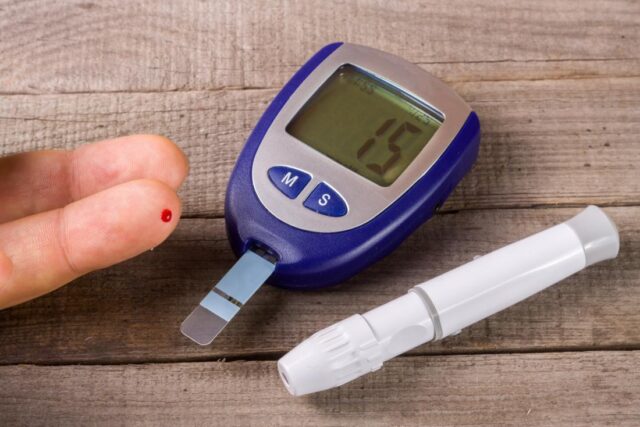
You get up from your chair, and your world starts spinning.
Dizziness is a crappy feeling that may leave you wanting to lie down until it passes. It’s a common feeling that anyone can experience, especially when you stand up too fast or move quickly.
However, it can be a worrying feeling if it happens multiple times.
If you often get dizzy, it’s important to look into it. It may be nothing, or it may be a symptom of something serious.
Even when there’s no underlying condition, random episodes of dizziness can be harmful and may result in accidents like when you’re driving, cooking, climbing stairs, etc.
If you have been feeling woozy lately, it is crucial to learn how to cope with the condition. Here are eight reasons why you may feel dizzy and how to treat it.
What is Dizziness?
When you’re dizzy, you feel like you’re losing balance, and your head is heavy. Still, different people experience varying sensations.
Some of the common feelings of dizziness that people report include:
- Feeling light-headed
- Feeling like the surroundings are spinning (also known as vertigo)
- Feeling tired and confused suddenly
For some people, the spells of dizziness are accompanied by other symptoms such as nausea and vomiting.
While dizziness tends to go away over time, when it’s caused by an underlying condition, you can only treat it by addressing that condition.
Possible Reasons Why You Experience Dizziness
Let’s take a look at some of the reasons why you may feel dizzy and what you can do about it.
1. Dehydration

Going with little or no water for a long time causes dehydration. When you’re dehydrated, your body loses the fluids that enable it to function normally. This affects the amount of oxygen that goes to the brain resulting in dizziness.
However, unless it’s severe, dehydration usually doesn’t require medical attention. You can quickly fix it at home.
Treatment
Drink more water and other fluids. You can also benefit from watery fruits like watermelons, pineapples, oranges, etc. If you’re suffering from severe dehydration, you may need Intravenous treatment to replenish your body fluids faster.
2. Low Blood Pressure
When you have a blood pressure that falls below 90/60mmhg, you have low blood pressure. The primary symptom for low blood pressure is dizziness, fatigue, blurred vision, and feeling sick.
Low blood pressure is just as dangerous as high blood pressure. For this reason, you shouldn’t ignore the kind of dizziness you’re experiencing.
Treatment
Treatment for low blood pressure generally depends on what’s causing it. There are tons of possible causes of low blood pressure, and most aren’t serious.
Talk to your doctor about how you’re feeling. They may run tests and suggest lifestyle changes to help you maintain normal blood pressure, which will, in turn, end the dizziness episodes.
3. Inner Ear Infections

The inner ear is responsible for body balance. An infection in the inner ear could lead to balance issues and warped vision, also known as vertigo.
Some patients with inner ear infections end up experiencing vertigo. Others barely develop symptoms.
Treatment
Treating vertigo comes down to treating the infection. When it clears, so will your symptoms. Your doctor may first examine your inner ear for injuries of fluid buildup to rule out any other causes.
Usually, you’ll be given an antibiotic prescription to treat the infection. You may also use natural remedies such as CBD, which has anti-inflammatory and immune-boosting properties. Check out Veriheal.com for a complete guide on CBD and its potential health benefits
4. Anemia
Anemia is a health condition that results in a low hemoglobin count. Hemoglobin is a protein in the red blood cells that carries oxygen throughout the body.
When left untreated, anemia can cause damage to your liver and other organs.
Patients with anemia report symptoms like fatigue, dizziness, and shortness of breath. This happens because there isn’t enough oxygen in the blood reaching the brain.
Treatment
Your doctor can prescribe drugs to help boost iron in your body. They will also suggest a diet that will help replenish your body’s iron levels. Once your blood levels improve, you won’t experience dizziness and other symptoms of anemia.
5. Hyperventilation

Hyperventilation is heavy or rapid breathing. It could be a result of anxiety or panic attacks. Some patients have also reported experiencing breathlessness, dizziness, and muscle spasms, among other symptoms.
Treatment
If you have anxiety and panic attacks, having someone close for support may help. Also, practice breathing in and out. You can relieve the symptoms by increasing your oxygen intake and measuring your breathing.
6. Motion Sickness
People who experience motion sickness feel dizziness and nausea. The feeling gets worse if the vehicle or train is constantly changing speed.
Treatment
Open the car window and breathe. Focusing on other thoughts and looking ahead can also relieve motion sickness. When traveling over long distances, take antihistamines such as Bonine or Antivert.
7. Low Blood Sugar

One of the symptoms of low blood sugar is dizziness and loss of balance. You get low blood sugar when your body is running low on energy. The light-headed feeling is a warning that you need to eat something to boost the sugar levels.
Treatment
You can reverse low blood sugar by eating foods rich in natural sugar. You can also eat snacks, sweet fruits, or soft drinks with high sugar content.
Glucose tablets and gel can also help deal with low blood sugar.
8. Pregnancy
During any trimester of pregnancy, some women will report episodes of dizziness. It’s usually a harmless response to being pregnant. However, it may also indicate an underlying condition if accompanied by other symptoms.
Treatment
Avoid coffee, drugs, alcohol, and cigarettes. Try getting plenty of rest to reduce the symptoms. Lie down when you have an episode until the feeling passes.
Final Thoughts
If you have been feeling dizzy lately, it could be one of the reasons above. However, we advise you to seek medical assistance immediately if the dizziness persists or you are unsure what’s causing them.









